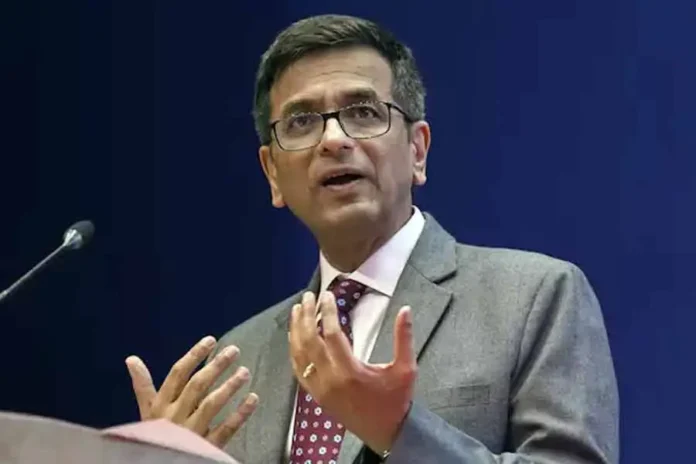Former Chief Justice of India DY Chandrachud has strongly advocated for eliminating retrospective tax amendments from India’s legislative framework, calling them a threat to legal certainty, economic justice, and investor confidence. Speaking at a national conference on tax law reforms in New Delhi, Chandrachud emphasized the need for a modern, predictable, and transparent taxation system that aligns with the principles of constitutional governance.

Retrospective Taxation Undermines Rule of Law
Describing retrospective tax laws as “a deviation from the principles of fairness”, the former CJI pointed out that such provisions create uncertainty, weaken trust in public institutions, and have historically led to prolonged litigation and arbitration.
He stated:
“The law should be prospective and clear. Retrospective taxation, especially when it affects settled rights or imposes unexpected liabilities, runs contrary to the idea of legal certainty which is fundamental to the rule of law.”
Context: India’s Troubled History with Retrospective Taxes
India has witnessed high-profile tax disputes due to retrospective amendments — most notably involving global companies like Vodafone and Cairn Energy. In 2012, the government passed a law that allowed taxation of past transactions, sparking years of legal battles and reputational damage to India’s investment climate.
Though the retrospective tax provision was eventually repealed in 2021, investor concerns have persisted, especially in the absence of a consistent policy framework that prevents future recurrence.
Need for Structural Reform
Justice Chandrachud stressed that tax policy must serve the dual purpose of revenue generation and equitable distribution without becoming a tool of unpredictability. He called for:
-
A codified framework ensuring tax laws are prospective
-
Institutional safeguards against arbitrary amendments
-
Simplification of tax administration to reduce litigation
-
Use of technology for greater transparency and accountability
He also urged that any changes in tax laws should go through rigorous public consultation and parliamentary scrutiny.
Balancing Sovereignty and Investor Assurance
While defending India’s sovereign right to legislate taxes, the former CJI highlighted the importance of honoring international commitments and legal stability, especially in a globalized investment landscape.
“We must strike a balance between our fiscal autonomy and our responsibility to maintain a just and stable tax system that fosters both compliance and confidence.”
Justice DY Chandrachud’s remarks add weight to ongoing discussions around tax reform and legal predictability in India. As policymakers deliberate on long-term reforms to improve ease of doing business and reduce litigation, his call to banish retrospective taxation serves as a timely reminder of the values enshrined in the Constitution — transparency, fairness, and justice.




